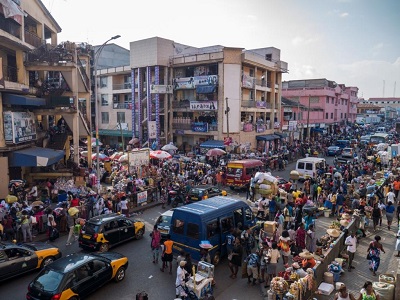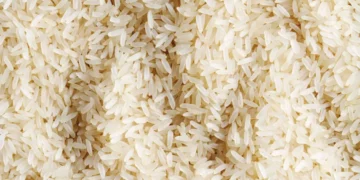The Perils of Market Interventionism: When Political Pressures Threatens Ghana’s Economic Gains – The Way Forward
Ghana’s economic trajectory in the first half of 2025 has inspired cautious optimism. In the mid-year fiscal policy review to Parliament on July 24, 2025, Finance Minister Dr Cassiel Ato Forson reported a 5.3% expansion in real GDP in the first quarter, inflation easing to 13.7% by end-June, the Cedi appreciating by 42.6% against the US dollar, and the public debt-to-GDP ratio falling from 61.8% at end-2024 to 43.8% by mid-year.
These macroeconomic gains reflect renewed market confidence in government stewardship, bolstering prospects for meeting—or even exceeding—year-end targets for growth, price stability, and fiscal consolidation.
Yet as Ghana’s macro indicators brighten, a worrying pattern of direct price interventions by political actors has emerged. Rather than championing policies that foster competition, innovation, and private sector-led growth, Minister for Communication, Samuel Nartey George, has openly summoned private firms—first telecommunication companies, now Multichoice Ghana—to cut their prices on command. Such top-down mandates risk undermining the very market trust that underpins the economy’s recent upswing.
In May 2025, Hon. Sam George successfully pressed Ghana’s mobile network operators to enhance data volumes for existing price points. MTN’s GHS3.00 bundle rose from 340MB to over 400MB, and its flagship GHS350 plan expanded from 92GB to 214GB. The public applauded this visible “win,” but telecoms and pay-TV differ fundamentally in cost structure, content licensing fees, and competitive dynamics. Success with telcos does not automatically translate into a free pass to dictate broadcasting tariffs.
Multichoice’s DStv service in Ghana spans six consumer packages, from the Padi entry tier (40+ channels) to the Premium bouquet (150+ channels with Showmax included). Between 2021 and 2025, the monthly fee for the Access package climbed from around GHS45 to GHS99—about 120% increase, averaging nearly 30% per annum (compound) over four years.
Yet these headline figures obscure vital context on the fact that Multichoice’s content acquisition (world-class sports rights, international networks) is priced in foreign currencies subject to global supply constraints, and that the pay-TV landscape in Ghana remains dominated by a single provider, limiting consumer choice and insulating Multichoice from downward price pressure.
When a firm holds a near-monopoly, pricing power follows. Rather than ministerial ultimatums, Ghana needs robust competition legislation to lower barriers to entry. Although StarTimes offers a discounted pay-TV alternative, its market share remains marginal, and state broadcaster GBC’s new channels (Sports Plus, Joy Sports+) lack the production quality and rights portfolio of DStv’s SuperSport channels.
A comprehensive Competition Act would not only curb monopolistic pricing but also incentivize new players—both domestic and regional—to challenge Multichoice’s dominance. Civil society experts have long urged Parliament to pass the draft competition bill that has been idle for nearly two decades.
Rather than wielding regulatory sticks, the Ministry of Communication could convene a structured meeting at which Multichoice would disclose its cost build-up—content licensing, currency hedging, local operations—and compare cross-market pricing, especially, in Nigeria and South Africa where equivalent packages cost 64% and 61% less respectively.
Such transparency would allow both sides to negotiate in good faith, aligned with Ghana’s broader commitment to market discipline.
Moreover, with government decision-makers no longer underwriting executives’ DStv subscriptions—a policy change that removes thousands of mandatory connections—the company faces a material revenue shortfall that could be leveraged as a mutual incentive for moderation. But this “leverage” must be used judiciously, not as a pretext for heavy-handed price controls.
Ultimately, price regulation is the domain of independent consumer protection agencies and antitrust enforcers—bodies insulated from political expediency. If Ghana had a fully empowered Consumer Advocacy Commission and an active Competition Authority, glaring market imbalances in pay-TV and beyond would find remedies through investigation, fines, and forced divestitures rather than public ultimatums
As Ghana pursues its 2025 macroeconomic anchors—real GDP growth of at least 4.0%, non-oil growth of 4.8%, an end-December inflation rate of 11.9%, and a primary-balance surplus of 1.5% of GDP—the government’s role should be to nurture a fair, competitive market environment.
That means passing the long-overdue competition law, strengthening regulator independence, and allowing private actors to innovate and compete. Political speeches ordering price cuts may win headlines, but it is robust market institutions and the rule of law that deliver lasting prosperity.
Recommendation
The government should convene a transparent, multi-stakeholder market review that brings together regulators, operators, consumers, and content providers. It must require Multichoice Ghana to submit a full, audited breakdown of its package costs, including content licensing fees, currency-hedging expenses, and local operational overheads.
Meanwhile, a strengthened competition authority would be empowered to investigate anti-competitive practices and curb any abuse of market dominance. To attract new entrants, the government can offer targeted incentives—such as tax credits or streamlined licensing—to credible competitors.
The Consumer Protection Agency should be tasked with fast-tracking subscriber complaints and mediating disputes. Simultaneously, Parliament must move with urgency to enact the long-pending Competition Law, embedding these measures into a robust legal framework that secures fair play and sustainable affordability in Ghana’s pay-TV sector.








